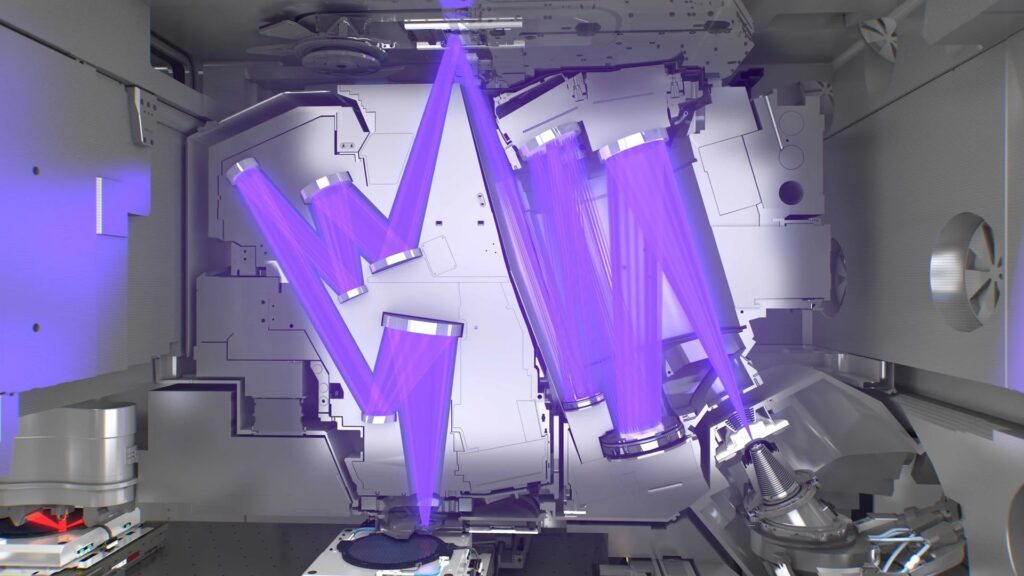Washington is making diplomatic efforts to contain China’s rise in high technology. In particular, the White House is trying to convince the Netherlands and a Dutch company to cut certain commercial ties.
It’s a battle that’s being played out behind the scenes, but one that’s likely to shape the tech landscape for decades to come. Should China be allowed access to the most advanced technical processes and thus acquire cutting-edge know-how in engineering and industrial manufacturing? For the United States, the answer is clear: it is out of the question.
In its July 5 edition, Bloomberg indeed reports Washington’s efforts to block certain exchanges between the Netherlands and the Middle Kingdom. At the heart of American concerns, a company with very special skills, which are, so to speak, unique in the world. Her name ? ASML—Advanced Semiconductor Materials Lithography.
It is precisely the equipment manufactured by this Dutch supplier that America would like to see stop circulating to Beijing. The White House understands that access to certain materials for the production of electronic chips can be used by its strategic rival to level up and catch up with the leaders in the sector, which are American, European, Taiwanese and South Korean.
Specifically, ASML assembles industrial machines tailored for an engraving process called extreme ultraviolet lithography (EUV lithography). The Dutch company is the only one to master it at this level today. This consists of using ultraviolet radiation to etch circuits with extreme miniaturization, of the order of a few nanometers.
They are huge devices with very high precision. In April 2021, Quartz noted that each EUV weighs 180 tons, takes 18 weeks to manufacture and costs more than 100 million euros. The prototype dates from 2010 and the first machines ready for production in 2016. In 2020, of the 258 photolithography systems that ASML sold, 31 were EUVs.
Diplomatic pressure to contain China
America’s diplomatic efforts to get The Hague to block ASML exports to China are not new. Already in 2020, Le Monde reported that the Trump administration was pressuring the Netherlands to prevent ASML from doing business with Semiconductor Manufacturing International Corporation (SMIC), a Chinese company.
At the end of 2020, moreover, the United States announced sanctions against SMIC. China’s containment efforts are one of the few agreements between Democrats and Republicans. Actions taken by President Donald Trump continue even today with Joe Biden — for example, the actions against Huawei have been upheld.

In terms of engraving fineness, China is not yet able to reach the market leaders. Among the companies that matter are Intel (USA), Samsung (South Korea), TSMC (Taiwan) for the production and miniaturization of chips, ARM (United Kingdom) for the design of processors or ASML (Netherlands) for engraving techniques.
China’s backwardness is said to be of the order of a few generations. To put it simply, if the leaders turn to the generation of chips whose transistors are of the “3 nanometer” class, after having occupied the segments of 5 and 7 nm, China would rather be around 10 and 14 nm — it is at this threshold that SMIC is evolving for the moment.
Beijing knows for decades that its reliance on foreign technology has been a vulnerability that needs to be addressed “, remarked in July 2020 Antoine Bondaz, research fellow at the Foundation for Strategic Research and China specialist. Washington also knows the dependence of this strategic rival and seeks to cut off its possibilities.
This very strong dependence on semiconductors is such that China imports more, in value terms, semiconductors than oil. This technological backwardness and this dependence on foreign countries, the ASML affair fully illustrates.